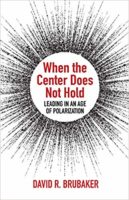Many phrases commonly used to describe the coronavirus pandemic have revolutionary overtones. Covid-19 is the “great disruptor,” the “medical disaster,” and the “economic catastrophe.” Writers assert that Covid-19 “will change the workplace forever,” arguing that its effects are both “global” and “enduring.” Reporting on the wave of unrest sparked by police killings of unarmed African Americans carries similar tones. Reporters describe the scope of the unrest as “unprecedented,” while the level of polarization in the country is “historic.”
However, I believe that the global pandemic and widespread protests have accelerated, rather than caused, the trends that are transforming our society and our congregations. I see three primary trends:
Widening Stratification
Those of us who are privileged enough to work from home the last three months are in a global and national minority. More than 40 million mostly hourly-paid workers in the U.S. have lost their jobs since March, and many small businesses were devastated while mega-corporations such as Amazon, Costco, and Wal-Mart are thriving. The pandemic appears to be punishing the small while rewarding the large.
Congregations have been experiencing this phenomenon for decades. Larger congregations tend to be stable or growing while smaller congregations continue to shrink. Many medium-sized congregations, like the American middle class, have either fallen into the ranks of the declining or (in a few fortunate cases) successfully joined the megas. The current pandemic has exacerbated the gap between small, struggling congregations and large, often growing ones.
Growing Polarization
Millions of people around the world were horrified by the brutal murder of George Floyd, an unarmed African American man in Minneapolis choked to death by a police officer. Subsequent protests in hundreds of American cities and towns denounced police violence and demanded equal justice for all citizens. It appears that race relations and racial justice in this country are little improved from 50 years ago—an impression not lost on international observers.
Polarized and racialized attendance patterns are not new phenomena for American congregations. Congregations tend to be known in their communities as “red,” “blue,” or (rarely) “purple”, and Sunday morning at 11:00 is still “the most segregated hour of Christian America.” The starkly divergent responses to President Trump’s waving a Bible in a violently cleared area in front of St. John’s Episcopal Church last week simply illustrated the profound racial and political differences among American Christians.
Online Congregating
Perhaps the most visible shift in congregational life three months ago was the pivot from face-to-face gatherings to fully online congregating. Within a week or two, the great majority of U.S. congregations shifted to worship, spiritual formation, and business meetings in online formats. The stunning speed of this pivot, and the sophistication of the delivery methods, left many congregants wondering why leaders hadn’t moved more programming online sooner.
Of course, many had. Nearly all the mega congregations in this country were already live-streaming their worship services, and the “multi-site movement” is highly dependent on technology. The call to adopt more technology was growing well before the current pandemic, albeit the pandemic dramatically accelerated adoption.
Covid-19 and nationwide protests accelerated the trends that were already evident—widening stratification, growing polarization, and online congregating. The question now facing congregational leaders is, “How do we make the adaptive changes needed to survive and thrive in this new reality?” I suggest three strategies:
Explore Merging
Mergers are not a panacea but can be a reasonable option for a small, declining congregation that has been unable to launch a successful growth strategy. Congregations need to ask some hard questions before exploring a merger, but the result can be positive when the process is done well. Alice Mann’s 2014 article on merger considerations, “Crunch Time in Smaller Congregations,” is well worth revisiting.
Embrace Justice
The stark racial and political divides in our country took centuries to establish and will not be easily or quickly dismantled. But congregations that fail to stand for racial justice will be increasingly shunned by the diverse Millennial and Gen Z generations. Younger Americans also take a dim view of nationalist and polarizing leaders, and most Americans don’t want their congregations to be politically partisan.
Offer Options
While many will want to physically gather once that becomes safe to practice, others will have come to prefer participating in their pajamas or streaming the worship service on their patio. Wise congregations will continue to offer multiple ways of congregating once this pandemic has passed—along with multiple ways of giving.
“Congregations will never be the same after this crisis,” a friend recently commented. True, but they were changing rapidly already. We have been living in a highly stratified, starkly polarized, and largely virtual world for some time; the pandemic and the protests stripped away the veneer. Now that we can see more clearly, we can respond more appropriately.
David Brubaker has consulted with organizations and congregations in the U.S. and a dozen other countries on organizational development and conflict transformation. He is the author of Promise and Peril, on managing change and conflict in congregations, and When the Center Does Not Hold, on leading in an age of polarization. David recently retired from his role as Dean of the School of Social Sciences and Professions at Eastern Mennonite University, and is now a Professor Emeritus of Organizational Studies.



